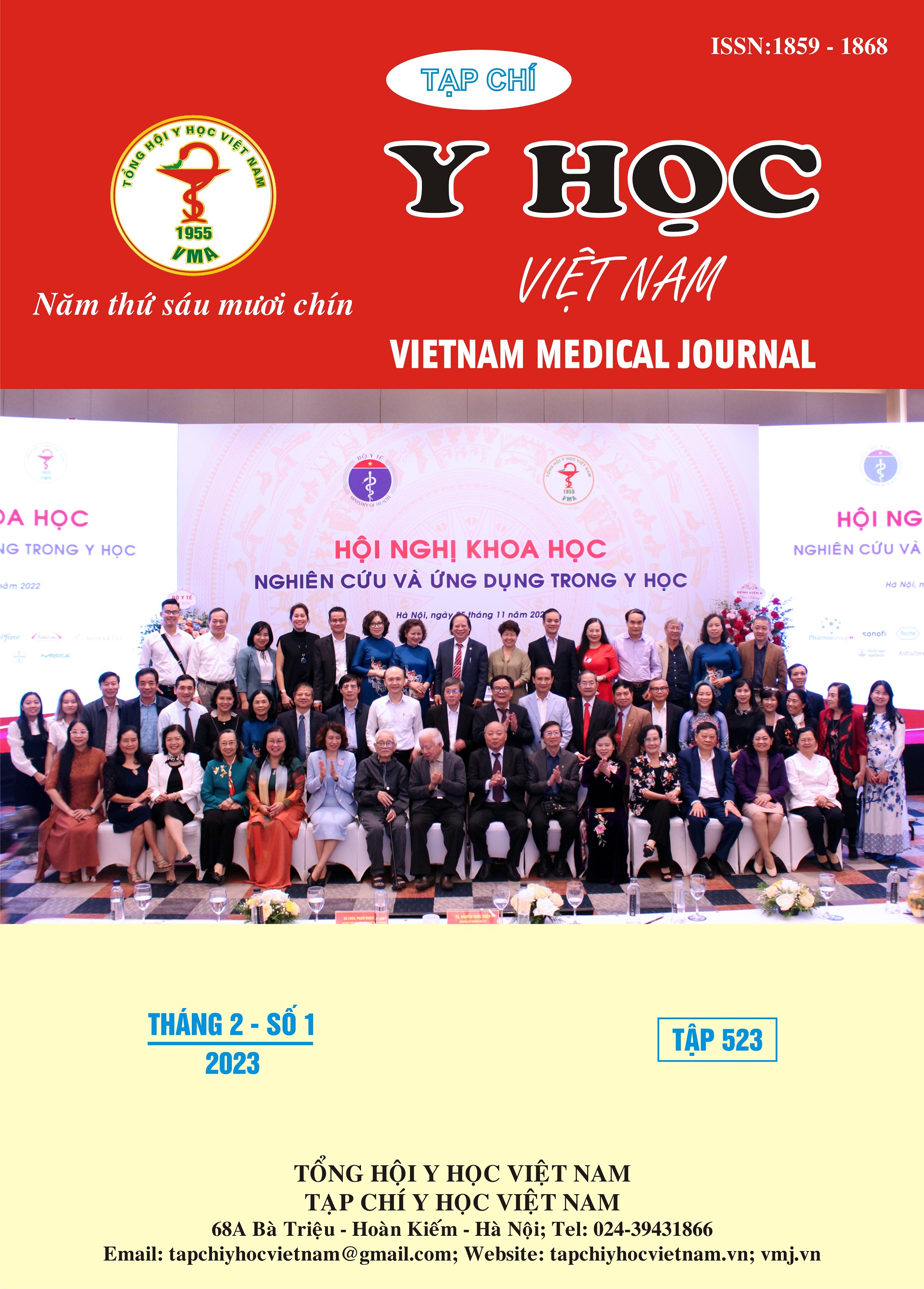OVERVIEW OF TREATMENT METHODS OF TINNITUS
Main Article Content
Abstract
Tinnitus is a common manifestation, the tinnitus prevalance in adults is 25.3% (50 million people); Prolonged tinnitus greatly affects the patient's quality of life, especially sleep, anxiety and depression, thereby affecting the quality of work, especially those requiring concentration. Up to now, the etiology, related factors and pathogenesis of this manifestation are still hypothesized and therefore there are many approaches to deal with such as sound therapy, hearing aids, counseling, etc. psychotherapy, cognitive-behavioral therapy, surgery, internal medicine, transcranial electric-magnetic stimulation, trans-tympanic injection, acupuncture,... Through an overview study of tinnitus treatment methods We collected 36 articles that met the research criteria. The methods of treating tinnitus mentioned include: Medicine (drugs to enhance cerebral blood circulation, increase the ability of brain cells to use oxygen, including the inner ear, stabilize chemical signals in the brain, reducing the possibility of intravascular thrombus formation and increasing blood flow to the brain regions); Transtympanic injection (Corticosteroids, OTO-313, AM-101...); Psychotherapy (cognitive-behavioral therapy, tinnitus retraining, meditation...); Sound therapy (noise generator, masker, music therapy); Use hearing aids; Neuromodulation (rTMS transcranial magnetic stimulation, multimodal neuromodulation, transcutaneous electrical stimulation, percutaneous vagus nerve stimulation...); Acupuncture; Cochlear implantation...
Article Details
Keywords
tinnitus, treatment methods
References
2. Farhadi M, Salem MM, Asghari A, Daneshi A, Mirsalehi M, Mahmoudian S. Impact of Acamprosate on Chronic Tinnitus: A Randomized-Controlled Trial. Ann Otol Rhinol Laryngol. 2020;129(11):1110-1119. doi:10.1177/0003489420930773
3. Lee HJ, Kim MB, Yoo SY, et al. Clinical effect of intratympanic dexamethasone injection in acute unilateral tinnitus: A prospective, placebo-controlled, multicenter study. Laryngoscope. 2018;128(1):184-188. doi:10.1002/lary.26541
4. E WB, G A, M F, V M. Internet-Based Audiologist-Guided Cognitive Behavioral Therapy for Tinnitus: Randomized Controlled Trial. Journal of medical Internet research. 2022;24(2). doi:10.2196/27584
5. Hodgson SA, Herdering R, Singh Shekhawat G, Searchfield GD. A crossover trial comparing wide dynamic range compression and frequency compression in hearing aids for tinnitus therapy. Disabil Rehabil Assist Technol. 2017;12(1):97-103. doi:10.3109/17483107.2015.1079266
6. Noh TS, Kyong JS, Park MK, et al. Treatment Outcome of Auditory and Frontal Dual-Site rTMS in Tinnitus Patients and Changes in Magnetoencephalographic Functional Connectivity after rTMS: Double-Blind Randomized Controlled Trial. Audiol Neurootol. 2019;24(6):293-298. doi:10.1159/000503134
7. Conlon B, Langguth B, Hamilton C, et al. Bimodal neuromodulation combining sound and tongue stimulation reduces tinnitus symptoms in a large randomized clinical study. Sci Transl Med. 2020;12(564):eabb2830. doi:10.1126/scitranslmed.abb2830
8. Marx M, Mosnier I, Venail F, et al. Cochlear Implantation and Other Treatments in Single-Sided Deafness and Asymmetric Hearing Loss: Results of a National Multicenter Study Including a Randomized Controlled Trial. Audiol Neurootol. 2021;26(6):414-424. doi:10.1159/000514085
9. Yang J, Song J, Zhao X, Pang C, Cong N, Han Z. Restoration of Deafferentation Reduces Tinnitus, Anxiety, and Depression: A Retrospective Study on Cochlear Implant Patients. Neural Plast. 2021;2021:6678863. doi:10.1155/2021/6678863


